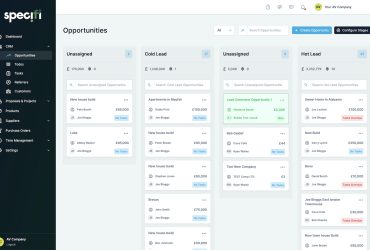The Retail Council of Canada (RCC) in partnership with Leger has released the sixth annual RCC X Leger Holiday Shopping Survey, which paints a pretty positive picture for this holiday shopping season.
According to the results of the survey, Canadians are set to spend a record $898 this holiday with 88% seeking ways to make their budgets go further. The vast majority (90%) of Canadians say they will shop for the winter holidays, especially on prime shopping days like Black Friday and Cyber Monday. Naturally, however, they will be seeking out deals.
“Even with prevailing financial concerns on Canadians’ minds, the desire to connect with loved ones and shop and share gifts and experiences remains undeterred,” says Diane J. Brisebois, President and CEO, Retail Council of Canada. “Retailers across the nation recognize these needs and will be providing Canadians with unique holiday shopping experiences, bolstered by exceptional products and engaging, value-added promotions.”
The figure of $898 marks an increase from last year, which was an average of $782 spent. A substantial 80% of this amount will be allocated for gifting others. Due to economic apprehensions, including inflation and rising living costs, however, Canadians will be more prudent about what they buy, from who, and went. Up from 83% in 2022, 88% of Canadians are turning to proactive holiday shopping tactics, most notably hunting for sales (52%), preparing in advance (41%), and adhering to a precise budget (40%).
Given this, Canadians are prioritizing holiday sales/promotions (66%) and free shipping (55%). They are also looking for in-store exclusives (48%) and distinct online promotions (60%) to provide additional value.
How can retailers attract customers? In-store shopping will benefit from value bundles (26%) and product sampling (25%), says RCC. Conversely, online shopping will be amplified by unique product offers and extended return policies, both at 33%.
Canadians are also willing to wait to get the best deals, especially for the big holiday events. The survey highlighted anticipated increases in shopping intentions for: Singles Day (10%, up from 5% in 2022), Black Friday (40%, up from 28% in 2022), Cyber Monday/Week (37%, up from 21% in 2022), and Boxing Day (32%, up from 18% in 2022).
What are Canadians planning to buy? Clothing emerges as 2023’s frontrunner, accounting for 17% of the holiday budget, followed closely by home entertainment and essentials like food and alcohol grabbing 16% of the planned spend. Canadians still love gift cards as well, with 45% of shoppers are leaning towards purchasing gift cards for others this season, and a notable 37% of Canadians (up from 32% last year) expressing a preference for receiving gift cards over traditional presents. Dining gift cards top the charts (42%) while big-box retailers come in at 33% and food outlets register at 27%.
Canadians are also being mindful of which retailers they support, with a preference towards local businesses this holiday. This has seen an increase in intent, with 82% of Canadians accentuating its importance, a leap from 74% last year.
Regionally, British Columbia residents might spend around $860 (vs the national average of $898), but Maritimers lead the country with their expected average spend of $1,110. Quebecers on the other hand report their spending will potentially be below the national average at $663. Quebecers are also likely to self-gift more, be more influenced by messages around sustainability, faster shipping, and allocate a larger chunk of their budget to entertaining at home.
On October 24, 2023, from 1-2pm ET, RCC will host an online Retail Holiday Shopping Webinar. Leger will discuss the survey’s pivotal findings, providing insights for retailers to refine their holiday strategies. Moneris will highlight how customer and industry payment data can facilitate better business decisions during the holiday peak. You can register for this FREE event.
The survey was conducted between August 14 and 23, 2023 in both official languages with a representative national sample of 2,500 Canadians aged 18 and over.









